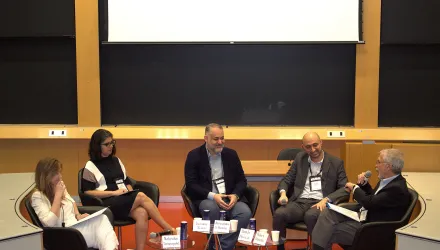Abstract
Mitigating climate change will require innovation in energy technologies. Policy makers are faced with the question of how to promote this innovation, and whether to focus on a few technologies or to spread their bets. We present results on the extent to which public R&D might shape the future cost of energy technologies by 2030. We bring together three major expert elicitation efforts carried out by researchers at UMass Amherst, Harvard, and FEEM, covering nuclear, solar, Carbon Capture and Storage (CCS), bioelectricity, and biofuels. The results show experts believe that there will be cost reductions resulting from R&D and report median cost reductions around 20% for most of the technologies at the R&D budgets considered. Although the improvements associated to solar and CCS R&D show some promise, the lack of consensus across studies, and the larger magnitude of the R&D investment involved in these technologies, calls for caution when defining what technologies would benefit the most from additional public R&D. In order to make R&D funding decisions to meet particular goals, such as mitigating climate change or improving energy security, or to estimate the social returns to R&D, policy makers need to combine the information provided in this study on cost reduction potentials with an analysis of the macroeconomic implications of these technological changes. We conclude with recommendations for future directions on energy expert elicitations.
Continue reading (log in may be required): http://link.springer.com/article/10.1007/s10584-016-1626-0?wt_mc=internal.event.1.SEM.ArticleAuthorOnlineFirst
Diaz Anadon, Laura, Erin Baker, Valentina Bosetti and Lara Aleluia Reis. “Expert Views — and Disagreements — About the Potential of Energy Technology R&D.” Climatic Change, June 2016





